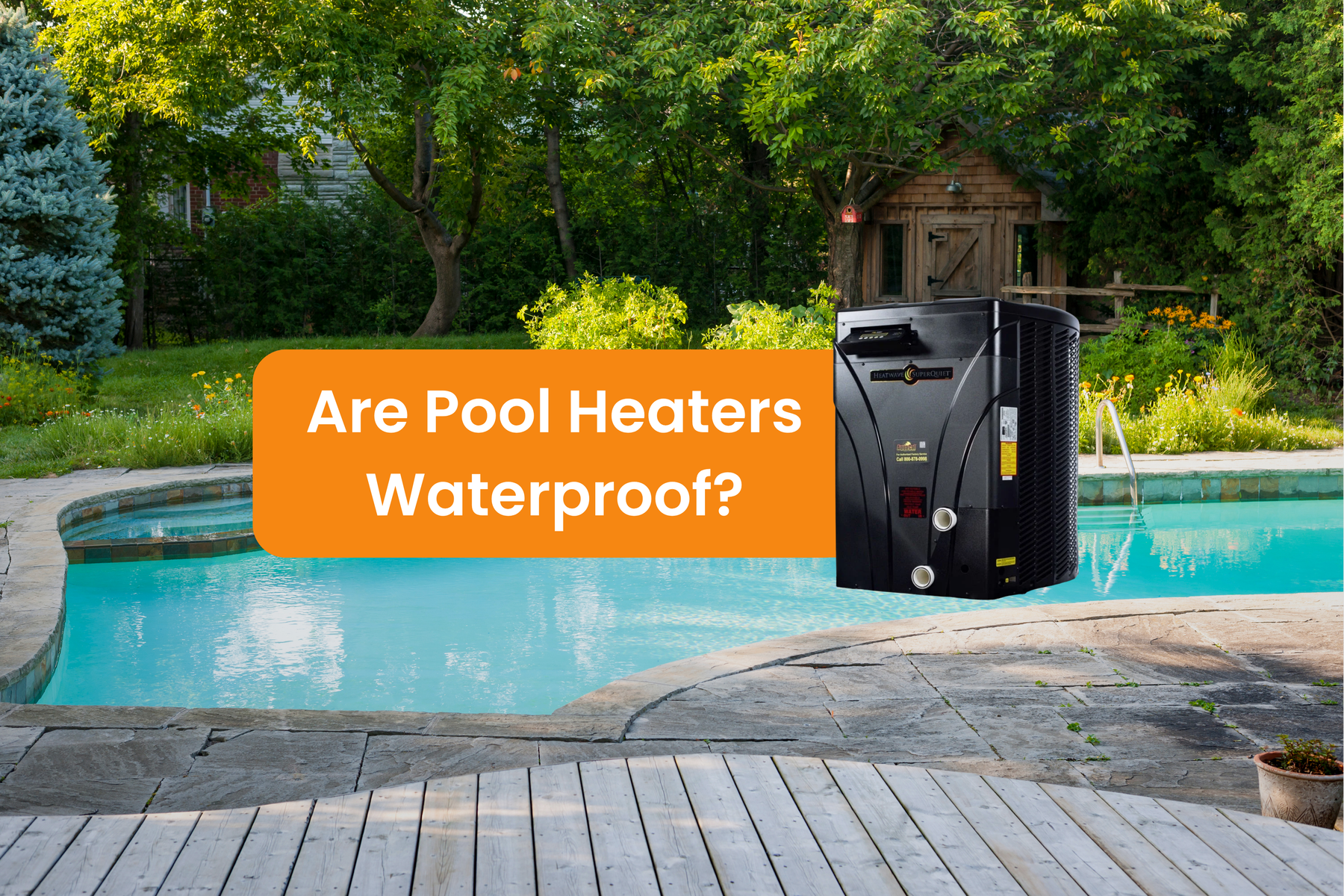
Are Pool Heaters Waterproof?
Understanding Pool Heater Waterproofing and Safety
Spoiler alert: Yes, most pool heaters are waterproof - but not all are created equal!
From surprise rainstorms to splash-happy cannonballs, pool heaters need serious water resistance to survive. Keep reading to find out which ones hold up best, what those weird IP codes mean, and how to keep your heater safe and working year-round.
Are Pool Heaters Truly Waterproof?
Not exactly. Most pool heaters are water-resistant, which means they’re built to handle rain, humidity, and splashes from nearby swimmers.
But that doesn’t mean they can take a dive into the deep end. If water gets into the wrong part - like the electrical components - it can cause damage or even become dangerous.
That’s why understanding the level of protection each heater has is important. It helps you figure out how much water it can handle and where you should (and shouldn’t) place it.
IP Ratings Explained (IPX4, IPX5)
You’ve probably seen codes like IPX4 or IPX5 on heater specs and wondered what they mean.
These are IP (Ingress Protection) ratings, and they show how well the unit is sealed against water and dust. The higher the second number, the more water it can handle.
-
IPX4: Handles water splashing from any direction. Think light rain or kids splashing nearby.
-
IPX5: Protects against water jets. A little stronger - good for heavier rain or hose spray.
If you’re placing the heater outdoors with little cover, go for the higher rating when possible.
Can Pool Heaters Get Wet? What to Expect
Yes, they can - to a point.
Outdoor models are made to sit near water. Rain, mist, and pool splashes are all part of the job. But that doesn’t mean they can sit in standing water or get soaked for long.
If too much water gets in, the heater could short out, rust, or stop working altogether. That’s why location, protective features, and regular checks matter.
Essential Electrical Safety for Pool Heaters
Pool heaters mix water and electricity, which can be a risky combo. That’s why the safety features built into them - and how they’re installed - are just as important as how they heat your water.
Do Pool Heaters Need GFCI Protection?
Yes. GFCI (Ground Fault Circuit Interrupter) protection isn’t optional - it’s a must.
These devices shut off power in a split second if they detect a fault. That could be moisture, a wiring problem, or even a kid kicking water toward the unit.
If your heater is installed outside or near the pool (which most are), it should be on a GFCI circuit. It’s a basic but vital layer of protection.
Why GFCI Protection is Crucial
Let’s say it’s raining, and your heater’s wires aren’t sealed properly. Without GFCI, that water could create a shock risk.
With it, the circuit trips before anyone even knows there’s a problem.
That’s not just good for safety - it also protects the heater from damage and helps you avoid costly repairs.
Professional Installation and Wiring
Unless you're a licensed electrician, don’t try to wire or install a pool heater yourself.
Improper wiring is one of the fastest ways to break a brand-new heater. Worse, it could become a safety hazard.
A professional will make sure the heater is grounded, sealed, and meets code. If something goes wrong later, you’ll be glad it was done right the first time.
Protecting Your Pool Heater from the Elements
Even if your heater is designed for outdoor use, that doesn’t mean it’s invincible. Wind, sun, water, and dirt can all take a toll over time.
A little protection goes a long way.
Covers and Enclosures
Think of a cover as a raincoat for your heater. It helps shield it from direct weather, UV rays, falling leaves, and other poolside messes.
Look for one that’s made of durable, weather-resistant material and still allows airflow. Just don’t cover it so tightly that it traps heat or moisture inside.
And skip the DIY trash bag method. It’ll just cause problems.
Maintaining Longevity in Outdoor Conditions
If your pool heater lives outside, get in the habit of doing quick monthly checkups.
Clear away dirt and leaves, check for rust or leaks, and make sure all the wiring is dry and intact. After heavy rain or storms, give it a once-over to make sure everything still looks good.
Also, keep the area around it clear. Don’t let mulch, pool toys, or garden hoses pile up nearby.


Leave a comment